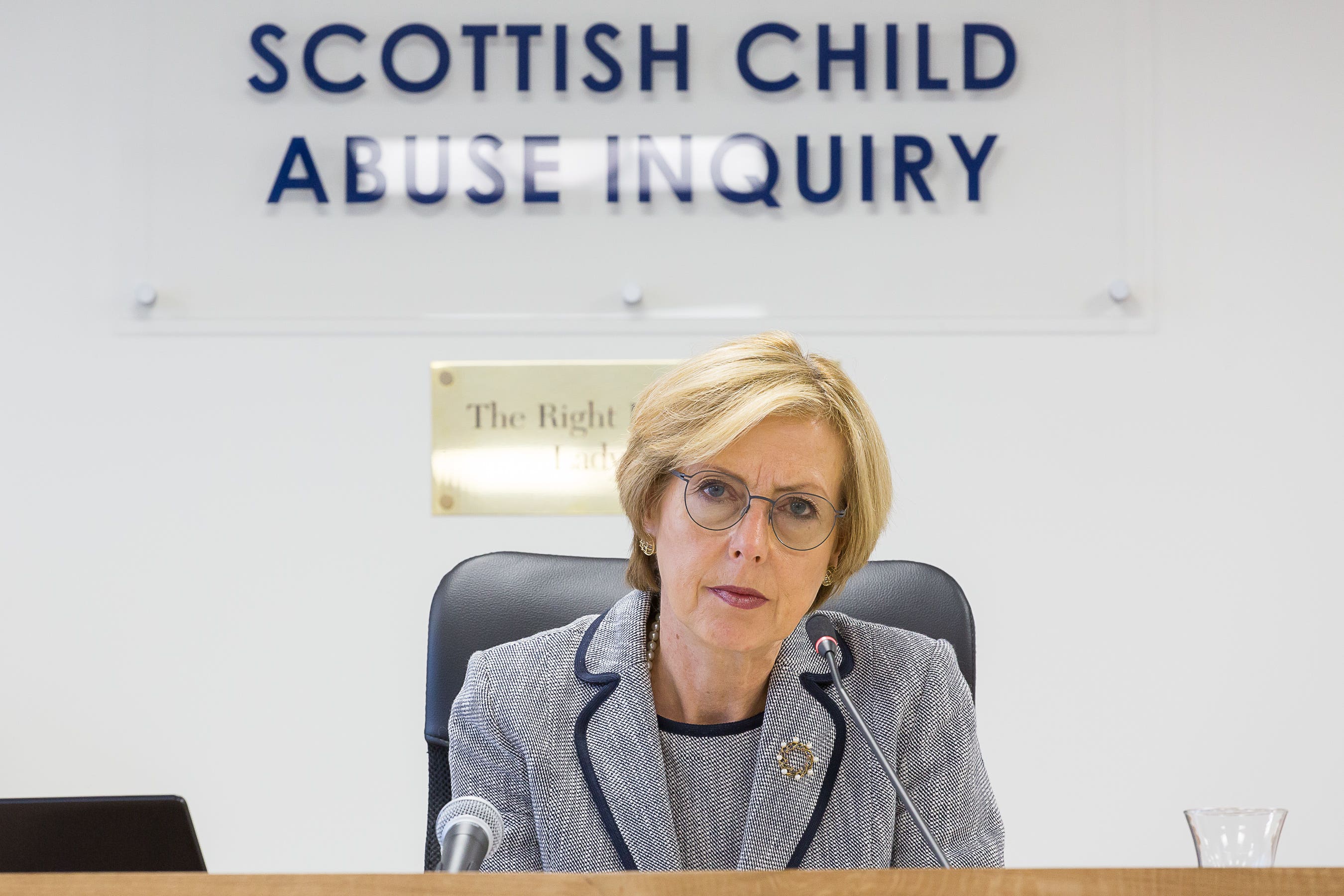Ex-boarding school harboured culture of violence and abuse, inquiry finds
Morrison’s Academy in Crieff issued a ‘sincere’ apology and thanked ex-pupils who gave evidence to the Scottish Child Abuse Inquiry.

A former boarding school which “harboured a culture of violence and emotional abuse” for decades has apologised after an inquiry found children were sexually, physically and emotionally abused there.
Some children who boarded at Morrison’s Academy, Crieff, Perthshire, were subjected to “excessive corporal punishment”, including in anticipation of misbehaviour, and “mass beatings” were administered, the Scottish Child Abuse Inquiry (SCAI) found.
The independent school, which ended boarding in 2007, issued a “sincere” apology and thanked ex-pupils who gave evidence to the inquiry in 2021.
The inquiry examined boarding provision at the school between 1945 and 2007.
Children who boarded at Morrison’s were exposed to risks of sexual, physical, and emotional abuse. That abuse had long-term impact. For decades, Morrison’s harboured a culture of violence and emotional abuse. The abuse was primarily physical and emotional, but also sexual abuse
It found pupils who spoke about about abuse could be punished by their peers, and older pupils perpetrated “fagging”, where younger pupils were forced to do chores for them and often bullied.
Some older pupils subjected younger children to sexual violence, while a culture of different boarding houses being run as individual “fiefdoms” according to the whims of the staff overseeing them was prevalent, it was said.
All three of the main boys’ houses: Academy, Dalmhor and Glenearn; were places where physical and emotionally abusive cultures were allowed to flourish between the 1950s and the 1980s, the inquiry found.
The residential units were founded in 1880, about 20 years after the school, but were only subject to “adequate oversight” in the 1990s, the inquiry found.
A statement from Morrison’s Academy commended the “bravery” of ex-pupils, and said it had co-operated with the inquiry since 2017 in a bid to “learn from the past” and improve safeguarding.
Inquiry chairwoman, Lady Smith, said: “Children who boarded at Morrison’s were exposed to risks of sexual, physical, and emotional abuse. That abuse had long-term impact.
“For decades, Morrison’s harboured a culture of violence and emotional abuse. The abuse was primarily physical and emotional, but also sexual abuse.
“Some members of staff at Morrison’s abused children, both in the school and in the boarding houses.
“Corporal punishment was used excessively and inappropriately by staff. It was even used in advance of misbehaviour taking place. On occasion, teachers indulged in mass beatings.
Morrison's Academy has supported the important work of the inquiry since 2017 and we sincerely hope the contributions that the school and our former pupils have made will help improve pupil safeguarding practices across the breadth of the education sector
“Morrison’s response to excessive and inappropriate corporal punishment was inadequate.”
Lady Smith found abuse was “endemic”, while prefects and “inappropriate” housemasters and housemistresses doled out violence, and a focus was on “reputation” over safeguarding – while peer group punishment was given to pupils who dared to “clipe”, or speak out.
Lady Smith added: “When boarding was established at Morrison’s in 1880, the ability to educate children was assumed to include an ability to provide appropriate residential care. That was an erroneous assumption and it prevailed for much of the time boarding existed at the school.
“It was assumed allowing teachers to operate private boarding houses, without supervision or oversight, would be appropriate. That was not a safe assumption.
“Far too often, houses were poorly run and poorly managed by ill-equipped and inappropriate housemasters/housemistresses who allowed abuse to become endemic. Boarding houses were, until the 1990s, not subject to adequate oversight by the school management.
“They could operate as separate fiefdoms where the character of the house master or mistress determined the character of the house for good or ill.
“I am very grateful to all who rose to the challenge of engaging with the inquiry, whether former pupils, former staff, or others. Their willingness to co-operate, assist, and contribute accounts of their experiences was welcome and invaluable.”
David Glen, chairman of the board of Morrison’s Academy said: “Morrison’s Academy sincerely apologises for the historic failings during its time as a boarding school.
“We accept the findings of the Scottish Child Abuse Inquiry in full. Morrison’s Academy would like to reiterate our gratitude to the former pupils who came forward and gave evidence to the inquiry.
“We were deeply saddened by their accounts of historic abuse and we commend them for their bravery and strength in coming forward.
“Morrison’s Academy has supported the important work of the inquiry since 2017 and we sincerely hope the contributions that the school and our former pupils have made will help improve pupil safeguarding practices across the breadth of the education sector.
“Morrison’s Academy is committed to learning from the past and ensuring the continued welfare and safeguarding of pupils.”
Further findings in relation to other boarding schools will be published in future.
The inquiry, which aims to raise public awareness of the abuse of children in care, is considering evidence up to December 17 2014 and which is within the living memory of any person who suffered abuse.
Bookmark popover
Removed from bookmarks